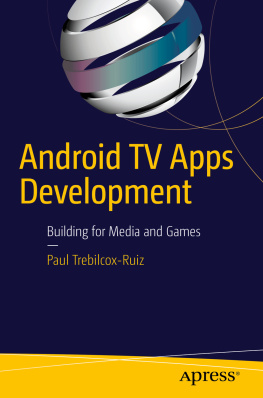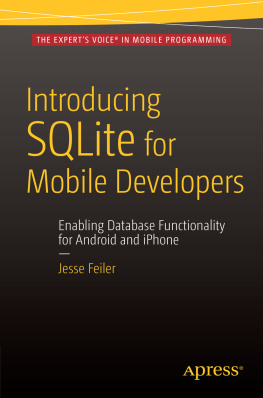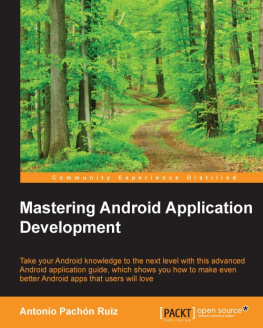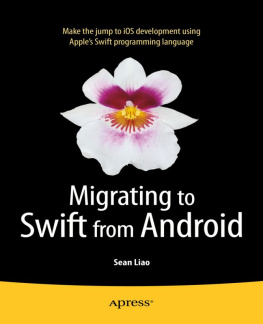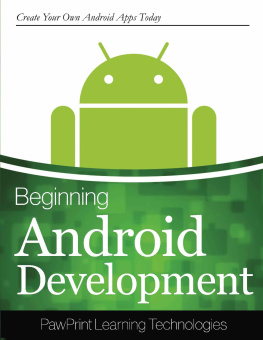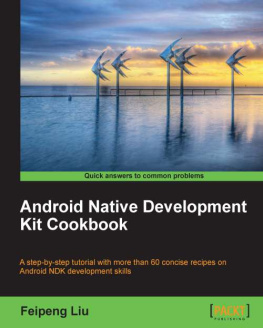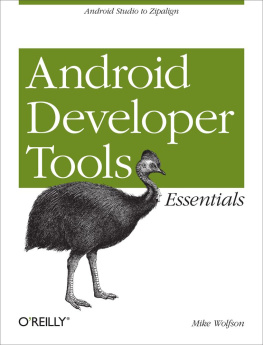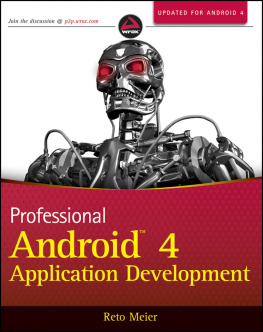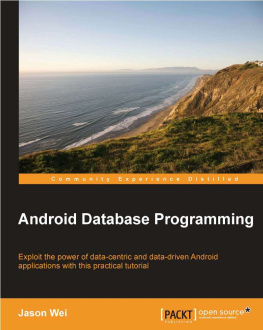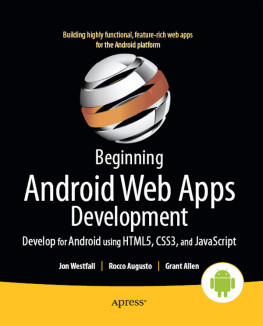Adam Stroud - Android Database Best Practices
Here you can read online Adam Stroud - Android Database Best Practices full text of the book (entire story) in english for free. Download pdf and epub, get meaning, cover and reviews about this ebook. year: 2016, publisher: Addison-Wesley Professional, genre: Computer. Description of the work, (preface) as well as reviews are available. Best literature library LitArk.com created for fans of good reading and offers a wide selection of genres:
Romance novel
Science fiction
Adventure
Detective
Science
History
Home and family
Prose
Art
Politics
Computer
Non-fiction
Religion
Business
Children
Humor
Choose a favorite category and find really read worthwhile books. Enjoy immersion in the world of imagination, feel the emotions of the characters or learn something new for yourself, make an fascinating discovery.

- Book:Android Database Best Practices
- Author:
- Publisher:Addison-Wesley Professional
- Genre:
- Year:2016
- Rating:4 / 5
- Favourites:Add to favourites
- Your mark:
Android Database Best Practices: summary, description and annotation
We offer to read an annotation, description, summary or preface (depends on what the author of the book "Android Database Best Practices" wrote himself). If you haven't found the necessary information about the book — write in the comments, we will try to find it.
Battle-Tested Strategies for Storing, Managing, and Sharing Android Data
Android Database Best Practices goes well beyond API documentation to offer strategic advice about how to handle data in an Android application and the tools needed to develop productively. This arms the developer with a trove of solutions to nearly any problem an application may face involving data. Mastering the concepts in this book are therefore essential for any developer who wants to create professional Android applications.
Greg Milette, Android developer, Gradison Technologies, Inc.
This is the first guide to focus on one of the most critical aspects of Android development: how to efficiently store, retrieve, manage, and share information from your apps internal database. Through real-world code examples, which you can use in your own apps, youll learn how to take full advantage of SQLite and the database-related classes on Android.
A part of Addison-Wesleys Android Deep Dive series for experienced Android developers, AndroidDatabase Best Practices draws on Adam Strouds extensive experience leading cutting-edge app projects.
Stroud reviews the core database theory and SQL techniques you need to efficiently build, manipulate, and read SQLite databases. He explores SQLite in detail, illuminates Androids APIs for database interaction, and shares modern best practices for working with databases in the Android environment.
Through a complete case study, youll learn how to design your data access layer to simplify all facets of data management and avoid unwanted technical debt. Youll also find detailed solutions for common challenges in building data-enabled Android apps, including issues associated with threading, remote data access, and showing data to users. Extensive, up-to-date sample code is available for download at github.com/android-database-best-practices/device-database.
You will
- Discover how SQLite database differs from other relational databases
- Use SQL DDL to add structure to a database, and use DML to manipulate data
- Define and work with SQLite data types
- Persist highly structured data for fast, efficient access
- Master Android classes for create, read, update, and delete (CRUD) operations and database queries
- Share data within or between apps via content providers
- Master efficient UI strategies for displaying data, while accounting for threading issues
- Use Androids Intents API to pass data between activities when starting a new activity or service
- Achieve two-way communication between apps and remote web APIs
- Manage the complexities of app-to-server communication, and avoid common problems
- Use Androids new Data Binding API to write less code and improve performance
Adam Stroud: author's other books
Who wrote Android Database Best Practices? Find out the surname, the name of the author of the book and a list of all author's works by series.

